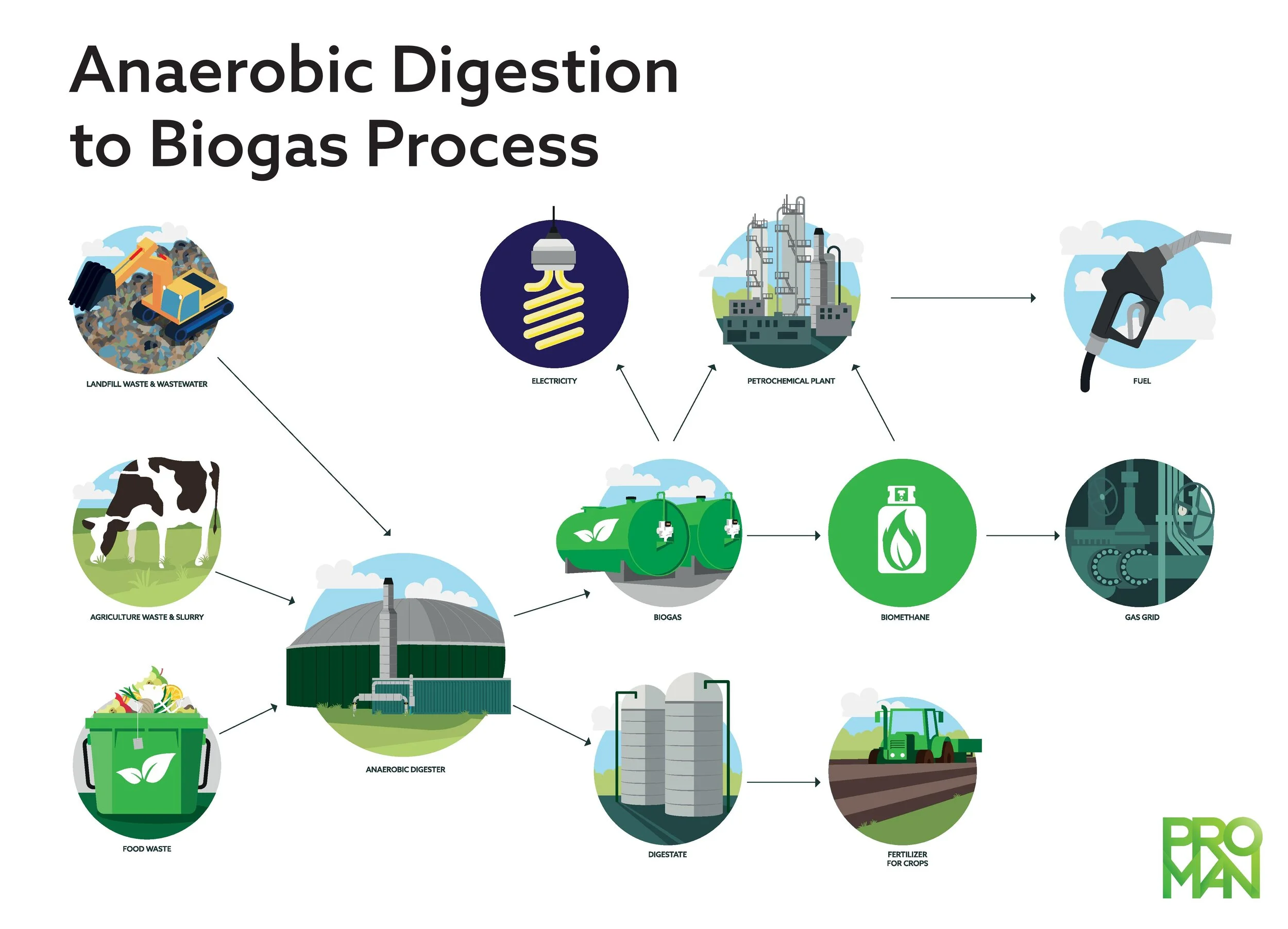Proman and The University of the West Indies (The UWI) announced the launch of an exciting new study to examine the potential of a biogas supply chain for Trinidad and Tobago, in line with national decarbonisation and waste-reduction efforts.
The multi-phase collaborative project will identify viable local sources of waste for an Anaerobic Digestion Project, and examine how these technologies and resources could be integrated into Trinidad and Tobago’s wider energy supply chain.
Anaerobic Digestion is a process in which organic wastes are broken down by microorganisms in an oxygen-free environment. The waste is converted to biogas, a sustainable alternative to natural gas, and digestate, which can be used as a fertiliser. In doing so, this process reduces greenhouse gas emissions, by recycling waste that would otherwise go to landfill and converting it into a sustainable alternative energy source.
This study will analyse the viability of various local waste options for this process, including agricultural by-products such as poultry waste and manure; food waste; wastewater; and sargassum (seaweed).
Today’s announcement builds on Proman’s longstanding support for The UWI and its students, as part of Proman’s commitment to promoting youth education and skills development. Alongside a range of other research partnerships and grants, Proman and its subsidiary Methanol Holdings (Trinidad) Limited (MHTL) have proudly sponsored the Campus’ Dennis Patrick Chair in Petroleum Engineering since 2003, currently held by Professor Andrew Jupiter.
Claus Cronberger, Managing Director, Proman Trinidad, said: “Proman is delighted to partner with The UWI on this study. By bringing together the university’s academic expertise with Proman’s industry experience, we hope to develop new and practical avenues towards more sustainable energy. Innovative projects like this will play a crucial role in facilitating our country’s lower-carbon transition, in line with the ParisAccord which reached its five-year anniversary last month. We look forward to sharing our findings and collaborating further on potential Waste to Energy projects in Trinidad and Tobago, which have significant potential to generate investment and skilled employment opportunities as part of our national post-COVID recovery.”
UWI Professor John Agard, Director of the St. Augustine Centre for Innovation and Entrepreneurship (STACIE) said: “The UWI is excited to work alongside Proman Trinidad on this study. This work provides new scope and direction on developing and informing innovative sustainable initiatives within the current downstream sector through a resource-circular value chain.” He added that the project not only has significant and direct relevance to the national, regional and international climate change mitigation strategies, but also promotes The UWI’s Triple-A strategy which augments greater alignment between industry, public service and academic excellence in research and development.
Proman is committed to supporting Trinidad and Tobago’s lower-carbon agenda and strengthening the pathway towards sustainable methanol and ammonia.

